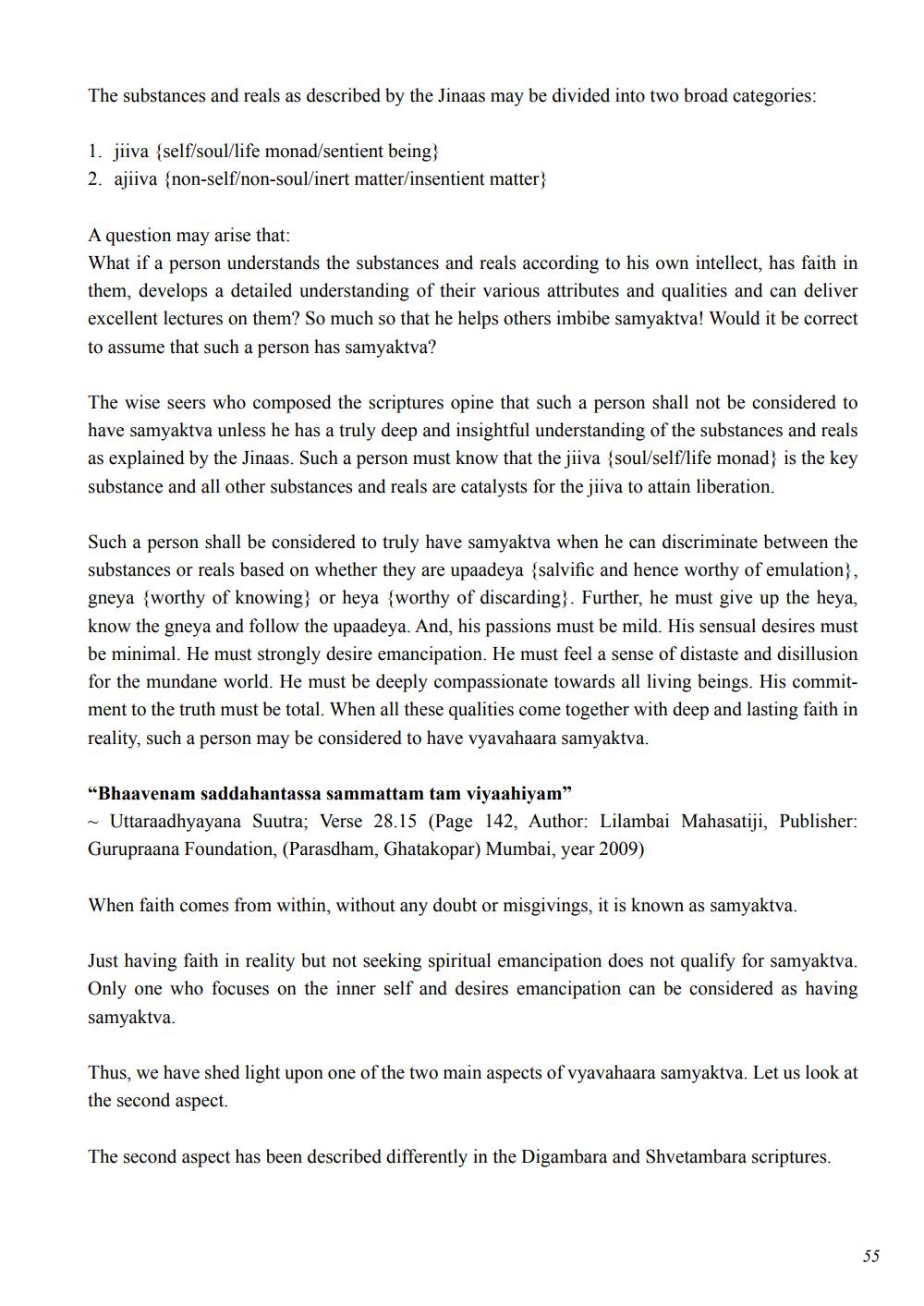________________
The substances and reals as described by the Jinaas may be divided into two broad categories:
1. jiiva (self/soul/life monad/sentient being} 2. ajiiva {non-self/non-soul/inert matter/insentient matter
A question may arise that: What if a person understands the substances and reals according to his own intellect, has faith in them, develops a detailed understanding of their various attributes and qualities and can deliver excellent lectures on them? So much so that he helps others imbibe samyaktva! Would it be correct to assume that such a person has samyaktva?
The wise seers who composed the scriptures opine that such a person shall not be considered to have samyaktva unless he has a truly deep and insightful understanding of the substances and reals as explained by the Jinaas. Such a person must know that the jiiva (soul/self/life monad) is the key substance and all other substances and reals are catalysts for the jiiva to attain liberation.
Such a person shall be considered to truly have samyaktva when he can discriminate between the substances or reals based on whether they are upaadeya (salvific and hence worthy of emulation), gneya {worthy of knowing} or heya {worthy of discarding). Further, he must give up the heya, know the gneya and follow the upaadeya. And, his passions must be mild. His sensual desires must be minimal. He must strongly desire emancipation. He must feel a sense of distaste and disillusion for the mundane world. He must be deeply compassionate towards all living beings. His commitment to the truth must be total. When all these qualities come together with deep and lasting faith in reality, such a person may be considered to have vyavahaara samyaktva.
“Bhaavenam saddahantassa sammattam tam viyaahiyam" - Uttaraadhyayana Suutra; Verse 28.15 (Page 142, Author: Lilambai Mahasatiji, Publisher: Gurupraana Foundation, (Parasdham, Ghatakopar) Mumbai, year 2009)
When faith comes from within, without any doubt or misgivings, it is known as samyaktva.
Just having faith in reality but not seeking spiritual emancipation does not qualify for samyaktva. Only one who focuses on the inner self and desires emancipation can be considered as having samyaktva.
Thus, we have shed light upon one of the two main aspects of vyavahaara samyaktva. Let us look at the second aspect.
The second aspect has been described differently in the Digambara and Shvetambara scriptures.




